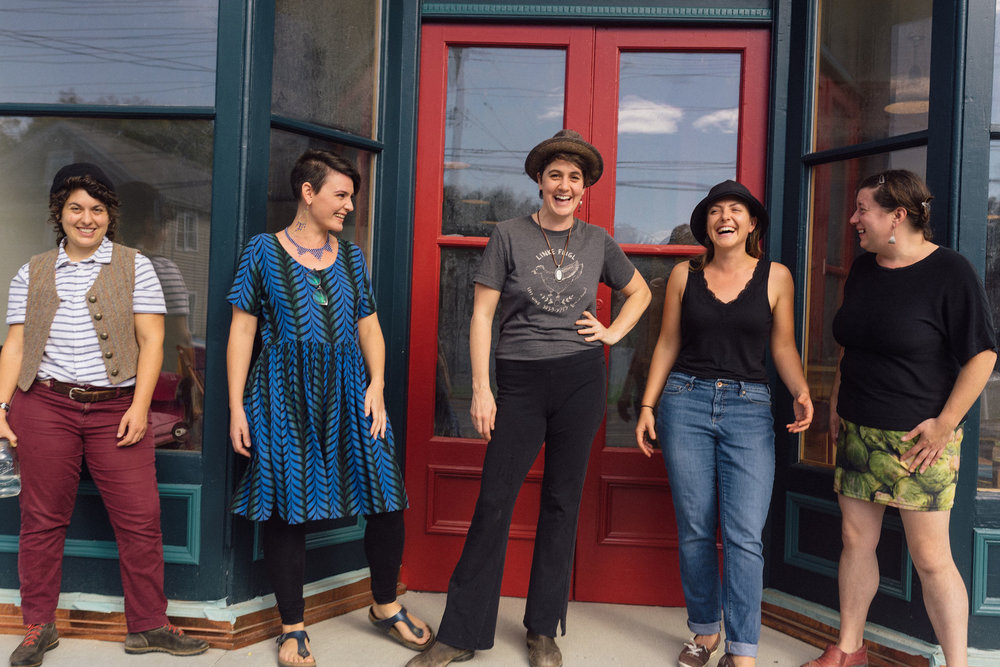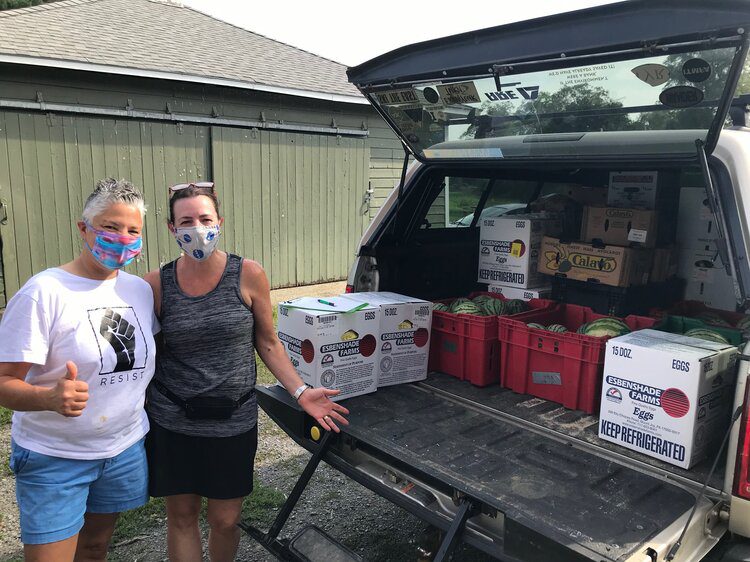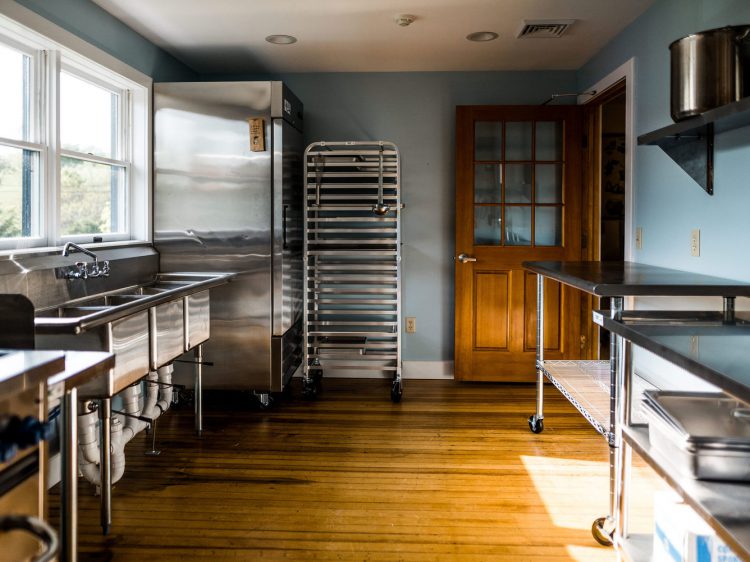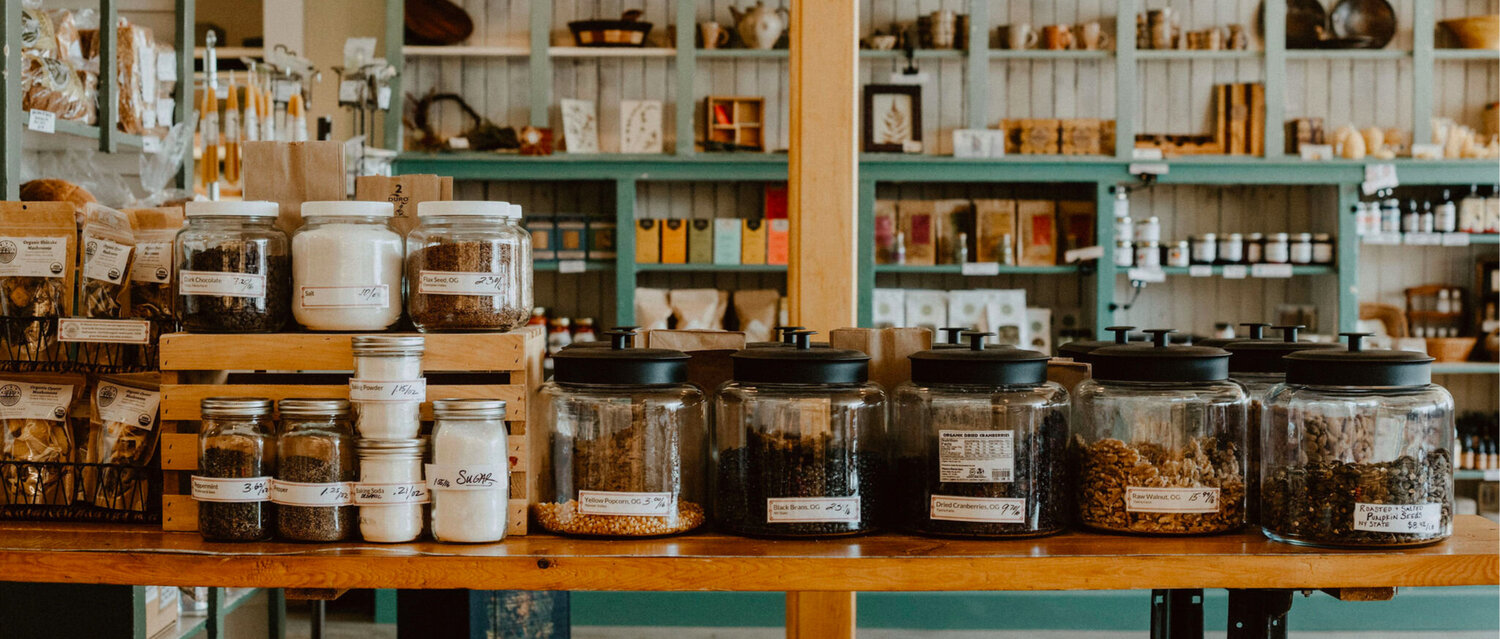In this edition of our Community Climate Champions series highlighting individuals and organizations building a better future for their communities, we focus on Random Harvest Market in Craryville, New York.
Having grown up on food stamps and going to food banks, Hillary Hawk understands what food insecurity is like. “I’ve always been passionate about food access,” Hillary said, “I believe access to food is a basic human right.”
That’s part of why she co-founded Random Harvest Market, a neighborhood market in Craryville, New York that puts relationships at the center of its mission. Co-founders Hillary, Robin, and Margot say their unique business model creates what they call a “relational food economy” because it fosters interactions between local food producers, workers, and community members.
For Hillary, building this community is the best part of her job.
Table of Contents
Everybody Wins With a Relational Food Economy
The great thing about Random Harvest’s model? It benefits the entire community—from the store owners, workers, vendors, customers, and nearby residents.
A relational food economy uses methods of exchange, pricing, and engagement to support an ecosystem of food growers, buyers, and community members at large.
Random Harvest Market stocks its shelves with food primarily from local farmers and food producers using a unique consignment model where producers set their own prices and RH takes a 25% commission on sales. This gives producers the opportunity to receive a higher margin on their sales through the market (~25%) than through traditional grocery retail (~15-20%).
“We provide the location and they pay 25% to be able to sell at our market,” Hillary said. What’s more, this consignment model ensures that Random Harvest does not risk losing money or wasting food. Producers get to keep whatever inventory Random Harvest doesn’t sell.
“Rather than using the term ‘local food economy,’ we call our business model a ‘relational food economy’ because we’re really passionate about weaving the relationships in our community around food, the land, farms, businesses, and customers,” Hillary explained. “There’s an ongoing relationship and you’re reaping rewards together,” Hillary told us. “Plus, when producers are dropping off themselves, we get to meet each other.” Random Harvest offers free coffee or tea to 100 + food producers when they visit the market in gratitude for all their hard work in feeding the community and to encourage them to visit with workers and community members.

Random Harvest Market’s Worker-Owners: Photograph by Lawrence Braun
A Worker-Owned Market
Random Harvest is not only distinguished by its business model, but by its leadership as well. As a worker-owned market, it is owned and governed by its employees.
The idea for the relational food economy began when they discovered Argus Farm Stop in Ann Arbor, Michigan. “One of our worker-owners is from the midwest, and happened to find out about the model when visiting Ann Arbor,” Hillary explained.
Argus Farm Stop calls itself an “everyday farmers market” that sells entirely on consignment and seeks to cultivate the local food economy. Motivated by the desire to keep local farms running despite their 90% decline since 1950, Argus Farm Stop sources directly from the growers.
Interested in bringing that ideology to the Hudson Valley, the Random Harvest founders reached out with questions, and eventually ended up spending three days there training with them and observing their business practices.
After taking the time to plan a model that is uniquely their own, but still inspired by Argus, Random Harvest was able to set up shop in an old market in Craryville, New York.
The Relational Food Economy: An Equity-Driven Model
Random Harvest Market has been committed to providing food access ever since it opened, but when COVID-19 hit, Hillary and the team wanted to take things a step further.
Accordingly, Random Harvest founded the Food Access Fund, a collection of donations that helps feed local community members who could use some extra support at this time. “We started asking people if they wanted to donate to our Food Access Fund whenever they made a purchase,” Hillary told us, “and people were generous with their donations.”
At the start of the pandemic, Random Harvest started giving community members $40 coupon codes they could use to purchase whatever groceries they want from the market’s online store. The team also delivers to people who do not own a car.
Random Harvest commits itself not only to food access, but also to anti-racism by sourcing from historically marginalized farmers, hiring BIPOC workers, and donating to local community members and nonprofits. While two-thirds of the food access fund goes to local Craryville members, the other third goes to Multicultural Bridge, a nonprofit in the Berkshires working to uproot racial inequities and promote intercultural understanding and respect.
This is a cause near and dear to their hearts. “We’re always looking at the ways racism is embedded in the food system and within ourselves,” Hillary told us. “We’re committed to doing the work personally and business-wise in terms of who we’re hiring within our organization and within our buying practices.”

A Space for the Whole Community
The vision of Random Harvest is to bring together a diverse community through food, shared work, sustenance, and learning. It aims to be a welcoming neighborhood space for farmers, producers, workers, and customers and includes a deli and café, indoor and outdoor seating for people to enjoy, and a community kitchen to rent.
The community kitchen offers producers space where they can make their food to sell and a space for cooking classes.
The community space on the second floor allows for Random Harvest to coordinate a diverse set of learning events such as international cuisine cooking classes, live music, yoga, farm samplings, and more.

In a relational food economy, the whole community wins, and the community is the top priority. In an increasingly globalized food world, this is a beautiful thing.
Like learning about community solar?
Join our monthly newsletter to hear about more renewable energy news and bold climate challenges.




